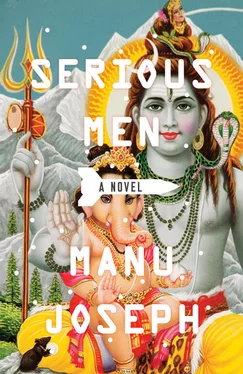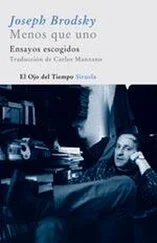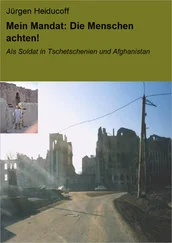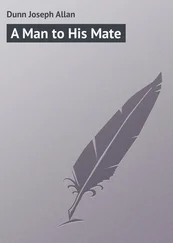It was seven when he reached the office. He sat in his chair and heard the ghostly sounds of a world that was suddenly alien. The desolation of morning was so different from the desolation of night. Strange birds sang, distant objects fell loudly and echoed, and there were faint tremors of laughter. Even the smell was unfamiliar. There was this odour of wet rugs and wood. He was about to open the window when he heard boys shouting and singing in the anteroom. Four cleaning boys burst into his room in a private festivity. Their happy faces fell when they saw him. They fled in shock, but one of them came back with a transparent bucket and started mopping the floor, throwing discreet glances at the giant. Acharya stared at the boy. Once, their eyes met and held each other for a few seconds. He didn’t know the Institute had cleaners.
Slowly, the morning unfolded and the world become familiar. Ayyan Mani walked in, neat and tidy, smelling like a room freshener, his thick black hair oiled and combed into an unflappable mass.
‘Coffee,’ Acharya said.
The whole day, he sat in his room, avoiding calls and dismissing visitors. He wanted the world to spare him, just for a day, but he was under siege. The forces of little men were outside his door. They infiltrated first as ominous telephone calls, and then they sent their dark messenger with clear white eyes who seemed to know something, who had a disturbing smile at the edges of his lips. Ayyan kept walking in and saying, ‘They have come, Sir,’ or ‘They have been waiting, Sir.’ By noon, Acharya yielded.
The Balloon Mission had proceeded into a frenetic stage and there were people on the black sofa outside whom he could not avoid. He called them in reluctantly and conducted meetings that collapsed into long silences when he stared blankly at the visitors, not knowing that a question had been put, a clarification sought, an opinion expected. By evening, the siege eased and he tried to find respite in Topolov’s Superman. But he could not concentrate. He opened the table drawer and looked at the blue envelope that Oparna had left last night. He had not opened it. ‘These are my pictures,’ she had said. ‘Not every man is allowed to see me like this.’ To open the envelope was to accept the affair, and the thought of Lavanya tortured him.
THREE HOURS BEFORE his confirmed appointment with love in the basement, it was inevitable that Arvind Acharya’s mind would wonder if Time flowed continuously, like a smooth line, or in tiny jumps like a dotted line. In the crisis of being seduced by a disturbing woman with real black hair, he needed the distraction of a problem that he knew he would not solve in three hours. But he could not take his mind away from the thoughts of touching the forbidden body of Oparna that would lie in wait for him beside microscopes and transilluminators (and, probably, perfumed candles which were not part of the Astrobiology department). But he also felt a morbid sorrow. For his wife of four decades who was at that moment, possibly, in the habitual melancholy of folding clothes. He had never felt this kind of sorrow before. He found it strange that the grief was not in his heart but somewhere in the stomach. And it was a dark, hollow kind of feeling. As if Lavanya had died, leaving him widowed in a pleasurable world. It was not a stab of conscience. It was, in fact, the emptiness of enjoying something all by himself without bringing her to share it. Without her presence, even the pleasure of adultery was not complete. And that was absurd. He could not bear it any more. This gloom in his stomach that hung just above an unexpected joyous swelling.
He got up from his chair and steered his trousers. The air in the room had become too still. But he forgot why he had risen. He stood rooted near his chair and contemplated the acoustics in the basement, and why men married, and the exalted place of fidelity on a dwarf planet that went around a mediocre main-sequence star somewhere in the outer arm of just another whirlpool galaxy. Eventually, he opened the window and breathed the first rush of sea breeze. It was dark outside, but he could hear the sea. It was violent. And there was something about the wind that portended the mother of all rains. He heard the door open behind him.
‘I wanted to see you,’ said the voice of Jana Nambodri, somewhat meekly. He was subdued these days after the defeat of the mutiny and the humiliation of being pardoned.
Acharya was about to turn and face the intrusion when he realized, just in time, that the youthful swelling caused by the thoughts of Oparna had yet to be tamed.
‘Jana,’ he said, without leaving the window, ‘Come tomorrow.’
Nambodri had already walked into the room when he heard this. He stood there a bit confused, but went away without trying to understand.
When the door shut, Acharya went hastily to his chair and for a fleeting moment, he felt like a gaping radio telescope. He sat behind the reassuring expanse of his desk and waited for time, whatever it might be, to pass. He tried to squeeze the erection with his massive thighs, suffocate its blood flow and release the tension. It might have been unprecedented, he suspected, for a man of advanced age to kill such a serendipitous unmedicated vigour, the pursuit of which, even among the young, was a billion-dollar industry. He briefly remembered Nicolaus Copernicus, at a moment in history, throttling his own heliocentric theory and conceding to the Vatican that the Earth was indeed the centre of the universe.
But Acharya’s problem did not subside. It protruded in a sort of sculptural defiance. Complicating the situation was a sudden urge in him to urinate. He did not have a private bathroom. He had dismissed past proposals by Administration because of the disruption that the creation of a washroom would have caused. He cursed himself for not having foresight. Now, he had to go halfway down the long, busy corridor. He grabbed The Times of India that was lying on the desk and went out reading, the paper unfolded to its full length.
Ayyan Mani looked at the giant figure walking away from him, and he wondered if the delirium of love could really make someone behave so strangely. Acharya went to the washroom that was called ‘Scientists’. There he kept The Times carefully on the hand dryer because he feared he might need it on the way back. There were five urinals on the blue-tiled wall and three senior astronomers were standing side-by-side, each separated from the other by a free pot. Acharya stood in between two of them. An insane wish came to him then to startle them, for boyish fun. He put his hands around the nape of his neck, elbows pointed up, as though he were stretching, and stood that way. His brisk manly spurt shot above the urinal. One by one, the other men turned to see the spectacle. Acharya always humbled them, but never like this.
He resumed the wait in his room, patiently rearranging objects on his desk. He reached for the drawer where he had hidden the perfumed envelope of Oparna. He no longer had the strength to resist the offer of love in the basement. So he thought he might as well open the envelope. Two black-and-white photographs slipped out. A little girl was in a bathtub. She must have been four years old.
At five minutes to ten he walked out of his room. Like an elephant, as always. He was disappointed to see people in the corridor. He was hoping that the Institute would be deserted because of the rains and, well, the pursuit of truth could bloody well wait some days. The lift was packed and he stood in its grim silence with his head bent. When the lift door opened at the ground floor, nobody moved because he was closest to the door and he was standing still, blocking half the way. They waited for him to step out, but he did not move. They went around him, like a stream around a boulder. The lift emptied, and that comforted him. He pressed the button that said B.
Читать дальше












